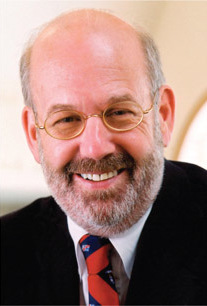Laboratory demand management strategies: An overview
Introduction
Libertarianism (from French: libertaire, itself from the Latin: libertas, lit. 'freedom') is a political philosophy that upholds liberty as a core value. Libertarians seek to maximize autonomy and political freedom, emphasizing equality before the law and civil rights to freedom of association, freedom of speech, freedom of thought and freedom of choice. Libertarians are often skeptical of or opposed to authority, state power, warfare, militarism and nationalism, but some libertarians diverge on the scope of their opposition to existing economic and political systems. Various schools of libertarian thought offer a range of views regarding the legitimate functions of state and private power. Different categorizations have been used to distinguish various forms of Libertarianism. Scholars distinguish libertarian views on the nature of property and capital, usually along left–right or socialist–capitalist lines. Libertarians of various schools were influenced by liberal ideas.
In the mid-19th century, libertarianism originated as a form of left-wing politics such as anti-authoritarian and anti-state socialists like anarchists, especially social anarchists, but more generally libertarian communists/Marxists and libertarian socialists. These libertarians sought to abolish capitalism and private ownership of the means of production, or else to restrict their purview or effects to usufruct property norms, in favor of common or cooperative ownership and management, viewing private property in the means of production as a barrier to freedom and liberty. While all libertarians support some level of individual rights, left-libertarians differ by supporting an egalitarian redistribution of natural resources. Left-libertarian ideologies include anarchist schools of thought, alongside many other anti-paternalist and New Left schools of thought centered around economic egalitarianism as well as geolibertarianism, green politics, market-oriented left-libertarianism and the Steiner–Vallentyne school. After the fall of the Soviet Union, libertarian socialism grew in popularity and influence as part of anti-war, anti-capitalist and anti- and alter-globalisation movements. (Full article...)
Selected article
Left-libertarianism (or left-wing libertarianism) names several related, but distinct approaches to political and social theory which stress both individual freedom and social equality. In its classical usage, libertarianism is a synonym for anti-authoritarian varieties of left-wing politics, e.g. libertarian socialism, which includes anarchism and libertarian Marxism, among others.
Left-libertarianism can also refer to political positions associated with academic philosophers Hillel Steiner, Philippe Van Parijs and Peter Vallentyne that combine self-ownership with an egalitarian approach to natural resources. While maintaining full respect for personal property, they are skeptical of or fully against private property, arguing that neither claiming nor mixing one's labor with natural resources is enough to generate full private property rights and maintain that natural resources (land, oil, gold and vegetation) should be held in an egalitarian manner, either unowned or owned collectively. Those left-libertarians who support private property do so under the condition that recompense is offered to the local community. Many schools of thought are communist, advocating the eventual replacement of money with labor vouchers or decentralized planning.
On the other hand, left-wing market anarchism, which includes Pierre-Joseph Proudhon's mutualism and Samuel Edward Konkin III's agorism, appeals to left-wing concerns such as egalitarianism, gender and sexuality, class, immigration and environmentalism within the paradigm of a socialist free market. In the United States, the word "libertarian" has become associated with right-libertarianism after Murray Rothbard and Karl Hess reached out to the New Left in the 1960s. However, until then political usage of the word was associated exclusively with anti-capitalism and in most parts of the world such an association still predominates.
Selected quote
| “ | My idea of a perfect government is one guy who sits in a small room at a desk, and the only thing he's allowed to decide is who to nuke. The man is chosen based on some kind of IQ test, and maybe also a physical tournament, like a decathlon. And women are brought to him, maybe...when he desires them. | ” |
| — Ron Swanson (2009) Parks and Recreation (Season 1) |
Selected picture
 |
General images
Selected biography -
Llewellyn Harrison Rockwell Jr. (born July 1, 1944) is an American author, editor, and political consultant. A libertarian and a self-professed anarcho-capitalist, he founded and is the chairman of the Mises Institute, a non-profit promoting the Austrian School of economics.
After graduating from university, Rockwell had jobs at the conservative Arlington House Publishers, the radical-right John Birch Society, and the traditionalist Hillsdale College. Reading the works of Murray Rothbard, who became his mentor, led Rockwell to become an ardent believer in Austrian economics and what he calls "libertarian anarchism". Rockwell was chief of staff to Congressman Ron Paul from 1978 to 1982, and was a founding officer and former vice president at Ron Paul & Associates, which published political and investment-oriented newsletters bearing Paul's name. Racist and homophobic content in those newsletters became a controversy in Paul's later campaigns; Rockwell denied ghostwriting it but acknowledged a role in the promotion. Rockwell partnered with Rothbard in 1982 to found the Mises Institute in Alabama, where , Rockwell still serves as chairman. (Full article...)Related portals
Parent portals
Socio-political portals
Topics
Categories
Points of interest
Associated Wikimedia
The following Wikimedia Foundation sister projects provide more on this subject:
-
 Commons
Commons
Free media repository -
 Wikibooks
Wikibooks
Free textbooks and manuals -
 Wikidata
Wikidata
Free knowledge base -
 Wikinews
Wikinews
Free-content news -
 Wikiquote
Wikiquote
Collection of quotations -
 Wikisource
Wikisource
Free-content library -
 Wikiversity
Wikiversity
Free learning tools -
 Wiktionary
Wiktionary
Dictionary and thesaurus












































